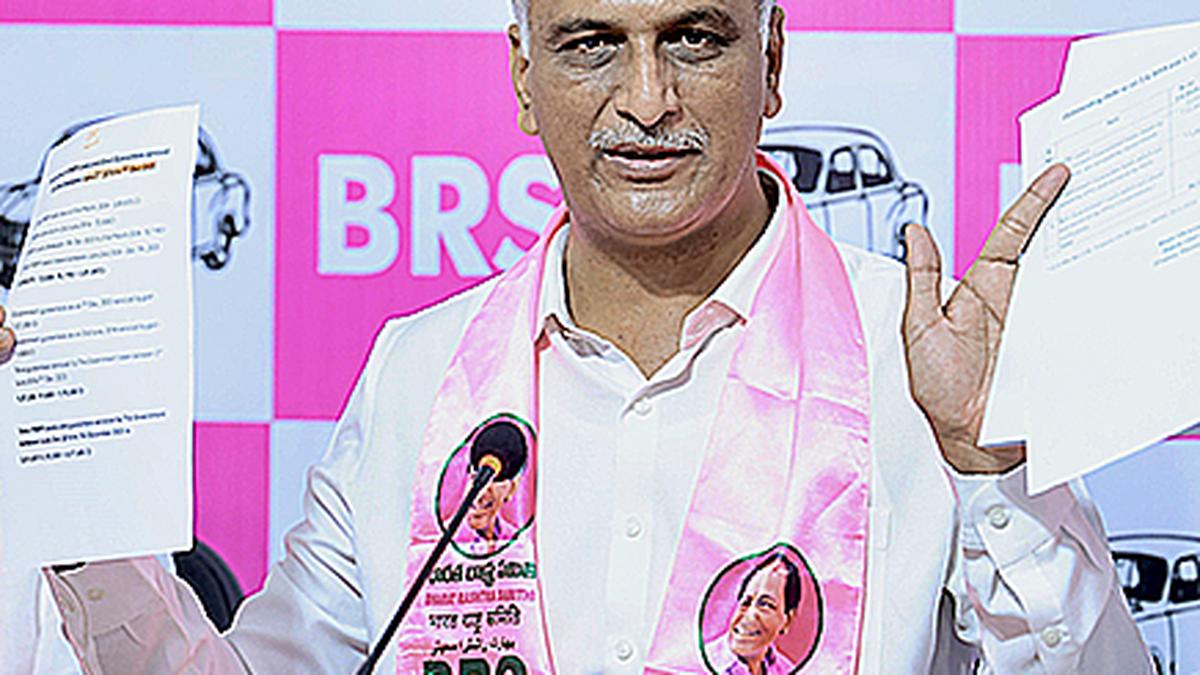
Deputy CM misled Assembly, people on GST growth in 2024-25, alleges Harish Rao
The Hindu
BRS leader Harish Rao accuses Deputy CM of misleading Assembly on Telangana's low GST growth in 2024-25.
HYDERABAD
Bharat Rashtra Samithi (BRS) senior leader and former minister for finance T. Harish Rao has alleged that Deputy Chief Minister M. Bhatti Vikramarka, who handles the portfolios of Finance and Energy, has misled not only the Assembly but also the people of the State in the matter of GST growth in 2024-25.
In a statement, Mr. Rao said on Tuesday that against the actual growth of 5.1% in 2024-25 (compared to the previous year), as per the official data, the Deputy Chief Minister had claimed in the Assembly that the State had posted 12.3% growth in GST collection. In March this year, the growth rate of GST was 0% in Telangana against the national average of 10%.
The official data had proved beyond any doubt that the Deputy Chief Minister had lied on the floor of the Assembly. He attributed the poor performance in GST revenue to unkept promises such as ₹12,000 crore pending Rythu Bharosa (₹8,000 cr. for Kharif and ₹4,000 cr. for Rabi) and the non-payment of the investment support had curtailed the rural spending.
Further, the misguided bulldozer policies like HYDRAA and Musi Riverfront Development (beautification) killed productive investment; scrapping of Pharma City and erratic Metro plans damaging business sentiment.
When people have no money in their hands, how would the consumption rise and how would GST grow? The Finance Minister had not just misled the Assembly but he had also misled every hard working citizen of Telangana, Mr. Harish Rao said. Never before had Telangana recorded such low GST growth, except during the COVID-19 lockdown period, he noted.





















 Run 3 Space | Play Space Running Game
Run 3 Space | Play Space Running Game Traffic Jam 3D | Online Racing Game
Traffic Jam 3D | Online Racing Game Duck Hunt | Play Old Classic Game
Duck Hunt | Play Old Classic Game











